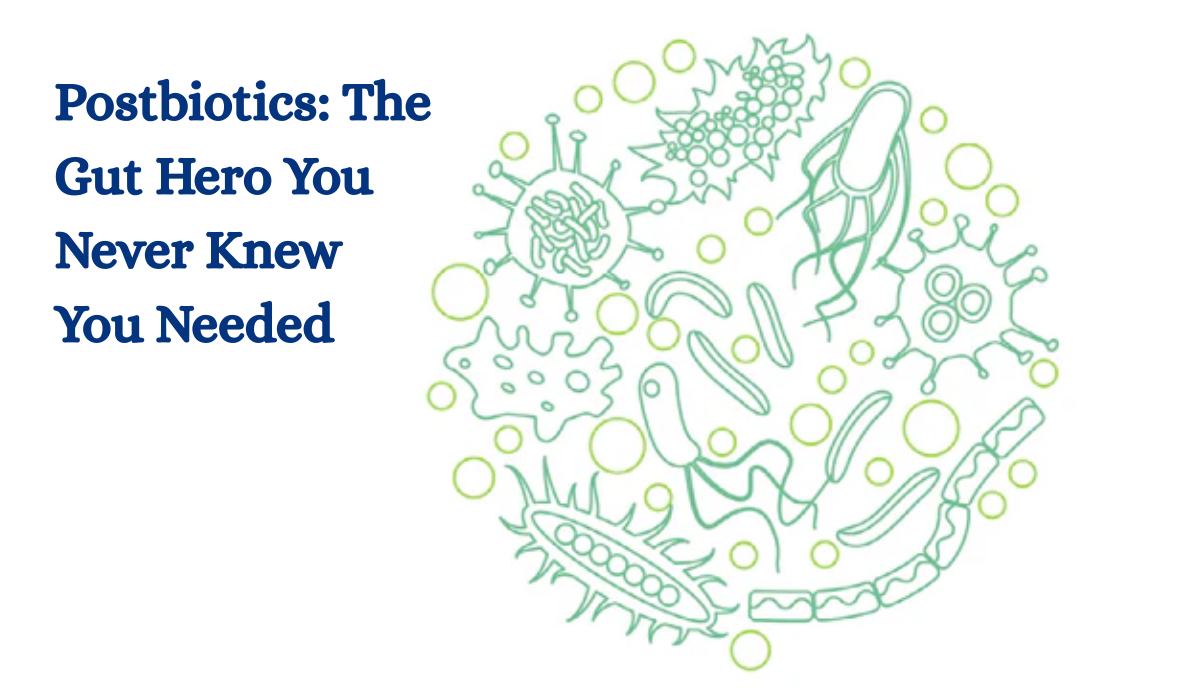You’ve heard all the wellness buzzwords:
Probiotics. Prebiotics. Gut health. Ferments. Fiber.
But here’s what no one’s talking about:
Postbiotics — the actual stuff that makes you feel good.
Because your curd can be full of “live cultures,” and your banana can be loaded with fiber,
but if your body isn’t making postbiotics, you’re not cashing in on the benefits.
So What Are Postbiotics?
They’re the end result of fermentation that happens inside you.
When good bacteria break down the right kind of foods, they release substances like butyrate, acetate, and anti-inflammatory compounds. These:
-
Seal your gut lining
-
Calm your immune system
-
Keep inflammation low
-
Regulate blood sugar
-
Improve mood and brain clarity
They’re basically your body’s built-in repair kit.
But only if you train your gut to create them.
How Do You Train Your Gut to Make More Postbiotics?
Let’s go beyond the usual “eat more fiber” advice.
Here’s a phase-wise, practical framework to build a postbiotic-rich body:
Step 1: Prime the Terrain — Clear the Noise
Before feeding your gut bugs, give your gut a break from what’s harming it.
-
Cut down on ultra-processed foods for 5–7 days. No biscuits, protein bars, or “baked snacks” pretending to be healthy.
-
Avoid refined oils and stick to cold-pressed mustard, sesame, or ghee.
-
Don’t combine sugar + fat in the same snack (like mithai or cookies) — this clogs your gut engine.
-
Sleep on time for at least 4 nights. Even the best diet won’t help if your gut clock is off.
This short “reset” creates space for beneficial bacteria to do their job again.
Step 2: Add Fermented Foods — But Do It Right
Not all fermented foods create the same postbiotic effect.
Here’s what works and how to use them properly:
-
Curd (homemade, not store-bought) – Have it during lunch, not dinner. Add a pinch of rock salt and jeera.
-
Buttermilk – Drink it post-lunch with a pinch of hing and curry leaves.
-
Kanji (fermented black carrot or beet water) – Have it mid-morning on an empty stomach, a few times a week.
-
Homemade pickle (salt + lemon or mango) – A tiny bite with lunch improves microbial diversity.
Avoid having ferments with fruits or after heavy dinners — it interferes with digestion and bloats you instead.
Step 3: Smart Fiber = Smart Gut Bugs
Not all fiber is equal. You need resistant starches and fermentable fibers, not just salads.
Here’s what that looks like:
-
Cooked and cooled rice or roti – Yes, leftovers! When cooled, starch becomes resistant and feeds good bugs.
-
Raw grated carrot with mustard seeds + lemon – a gut tonic before lunch.
-
Mashed boiled potato with jeera, raw onions, mustard oil – traditional, tasty, and gut-friendly.
-
Sabudana soaked overnight + lightly cooked with cumin – a prebiotic energy boost.
-
Stewed apple with cinnamon – builds butyrate-producing strains.
Eat these regularly, not randomly.
Step 4: Introduce “Mini-Fasting” Windows
Your gut bugs need time to clean up. Constant snacking overloads the system.
Try this approach:
-
Eat your meals in a 10–12 hour window (e.g., 8 AM to 8 PM)
-
Leave at least 3–4 hours between meals
-
Drink warm water or fennel-coriander-cumin tea in between
-
Don’t eat late-night — postbiotic production peaks during sleep
This rhythm helps the beneficial bacteria complete their fermentation cycle without interruption.
Step 5: Keep the Gut Climate Calm
Your gut is listening to your emotions more than you think.
-
Practice 3 deep belly breaths before eating — it switches on digestion
-
Chew slowly – digestion starts in the mouth. Gulping reduces postbiotic output.
-
Stop scrolling while eating — the brain doesn’t register food when distracted
-
Add grounding activities like walking barefoot, journaling, or oiling your belly at night. These sound simple, but they activate the parasympathetic system — crucial for gut repair.
Final Thought:
You don’t need powders, pills, or imported probiotics.
You need consistency, diversity, and rhythm in how you live and eat.
Let others chase nutrition trends.
You? You’ll be quietly training your gut to produce the most powerful medicine it can make: postbiotics.
And your body will thank you — with sharper energy, calmer moods, stronger immunity, and lighter digestion.



